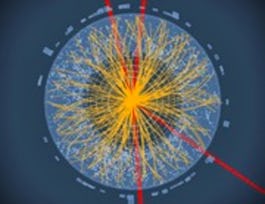Introduction to Genetics and Evolution is a college-level class being offered simultaneously to new students at Duke University. The course gives interested people a very basic overview of some principles behind these very fundamental areas of biology. We often hear about new "genome sequences," commercial kits that can tell you about your ancestry (including pre-human) from your DNA or disease predispositions, debates about the truth of evolution, why animals behave the way they do, and how people found "genetic evidence for natural selection." This course provides the basic biology you need to understand all of these issues better, tries to clarify some misconceptions, and tries to prepare students for future, more advanced coursework in Biology (and especially evolutionary genetics). No prior coursework is assumed.



Introduction to Genetics and Evolution

Instructor: Dr. Mohamed Noor
Sponsored by IEM UEM Group
169,844 already enrolled
(1,670 reviews)
Details to know

Add to your LinkedIn profile
18 assignments
See how employees at top companies are mastering in-demand skills


Earn a career certificate
Add this credential to your LinkedIn profile, resume, or CV
Share it on social media and in your performance review

There are 12 modules in this course
General introduction to this MOOC, including coverage and expectations.
What's included
2 readings
This module discusses the definition of the word "evolution" in a biological context, evidence for the truth of evolution and common ancestry of species, and public thoughts and misconceptions about biological evolution. This module is optional and will not be included in the course assessments. There are not class discussion forums for this section, as we feel such discussion can happen on other, non-course-related, sites on this topic (of which there are a great many on the internet).
What's included
5 videos1 reading
An introduction to basic transmission genetics and inheritance. This module reflects what is often covered in high school biology courses in the USA.
What's included
6 videos1 reading2 assignments
This module delves somewhat more deeply into genetics and specifically the concept of "recombination." It begins to discuss how recombination is leveraged in classic genetic works as well as mapping simple genetic traits using crosses or data from natural populations.
What's included
7 videos1 reading2 assignments
This module delves even more deeply into the complexities of the genetics underlying traits,the origin of genetic variation, and how "complex" traits (ones controlled by multiple genes) are studied genetically.
What's included
6 videos1 reading2 assignments
This module begins the transition to evolutionary genetics by looking at the relative contributions of genetics and environment to traits, and also introduces how population growth is studied.
What's included
6 videos1 reading2 assignments
Rather than looking at individuals, this module discusses how multiple individuals from natural populations can be studied genetically to begin to understand the evolutionary forces acting upon the populations.
What's included
6 videos1 reading2 assignments
This module extends the previous one to specifically examine the effects of natural selection and genetic drift on genetic variation in natural populations.
What's included
7 videos1 reading2 assignments
This advanced module explains why sexual reproduction (involving recombination) is evolutionarily advantageous, and discusses how the analysis of DNA sequences can be used to understand the evolutionary forces acting on populations or species, either in general or at specific genes.
What's included
7 videos1 reading2 assignments
This module changes gears a bit to look at the exciting field of animal behavior-- specifically, how particular behaviors are or may be adaptive, and why individuals choose particular others as mates.
What's included
5 videos1 reading2 assignments
This module gets into the nitty gritty of what causes the formation of new species, and how evolutionary relationships between species are inferred.
What's included
6 videos1 reading2 assignments
This final module talks about applications and misapplications of many of the concepts discussed in the course to human health, understanding, and well-being. This module is optional and not included in the assessments.
What's included
2 videos1 reading
Instructor

Offered by
Why people choose Coursera for their career




Learner reviews
1,670 reviews
- 5 stars
84.91%
- 4 stars
11.54%
- 3 stars
1.91%
- 2 stars
0.71%
- 1 star
0.89%
Showing 3 of 1670
Reviewed on Sep 27, 2017
Very good course that prepared me for Genetics at Pima Community College in Tucson. I am able to follow the lectures and actually understand what is being presented. I am glad I took this course.
Reviewed on Jul 5, 2020
Perfectly designed course. Really interesting videos and tests that are actually fun to take part in. Highly recommended for everyone interested in Biology. Cheers Darwin and Wallace.
Reviewed on Aug 11, 2022
A new subject for me to get to grips with (as a programmer) and there were many areas I struggled with, but ultimately an enjoyable and eye-opening introduction to the subject.
Recommended if you're interested in Health

University of Colorado Boulder

Stanford University

University of Geneva

Tel Aviv University

Open new doors with Coursera Plus
Unlimited access to 10,000+ world-class courses, hands-on projects, and job-ready certificate programs - all included in your subscription
Advance your career with an online degree
Earn a degree from world-class universities - 100% online
Join over 3,400 global companies that choose Coursera for Business
Upskill your employees to excel in the digital economy


